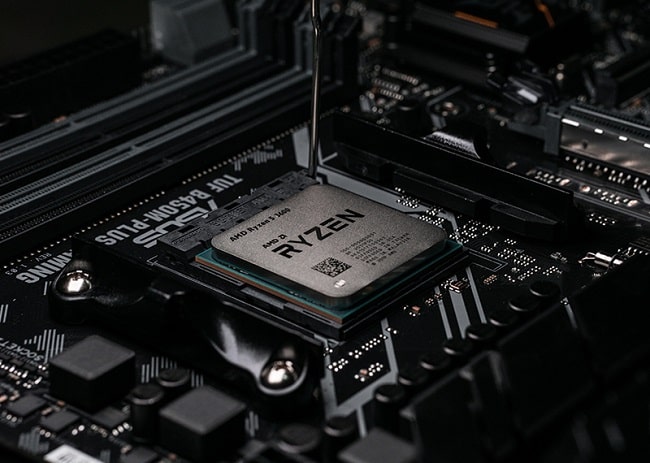Crime on/Through the Internet:
The Internet helps us to connect with the world for the exchange of our views and material. With the help of the Internet, we can send e-mail messages, sell or purchase items and we can use video conferencing. however, these are some of the uses which are helpful for us, but many crimes are also sneaking into the Internet.

Cyber Crime
Any criminal activity that uses a computer either as an instrument, target, or a means for perpetuating further crimes comes within the ambit of "cyber crime."
A generalized definition of cyber crime may be "unlawful acts wherein the computer is either a tool or target or both." The computer may be used as a tool in various kinds of activities: financial crimes, sale of illegal articles, pornography, online gambling, intellectual property crime, e-mail spoofing, forgery, cyber defamation, and cyber stalking. The computer may, however, be a target for unlawful acts in various cases: unauthorized access to computer/computer system/computer networks, theft of information contained in the electronic form, e-mail bombing, data diddling, salami attacks, logic bombs, Trojan attacks, Internet time thefts, Web jacking, theft of computer system and physically damaging the computer system.
Reasons of Cyber Crime:
1. Capacity to store data in comparatively small space: The computer has the unique characteristic of storing data in a very small space. This makes removing or deriving information either through physical or virtual mediums much easier.
2. Easy to access: The problem encountered in guarding a computer system against unauthorized access is that there is every possibility of breach not due to human error but due to the complex technology. by secretly implanted logic bombs, key loggers that can steal access codes, advanced voice recorders, retina imagers, etc., that can fool biometric systems and bypass firewalls that can be utilized to get past many a security system.
3. Complex: Computers work on operating systems and these operating systems in turn are composed of millions of codes. The human mind is fallible and there might be a lapse at any stage. Cyber criminals take advantage of these lacunas and penetrate them into the computer system.
4. Negligence: Negligence is very closely connected with human conduct. It is, therefore, probable that while protecting the computer system there might be any negligence, which in turn can control the computer system.
5. Loss of evidence: Loss of evidence is a very common and obvious problem as all the data are routinely destroyed. A further collection of data outside the territorial extent also paralyzes this system of crime investigation.
Types of Cyber Crime:
1. Unauthorized access to computer systems or networks/hacking: This kind of offense is normally referred to as hacking in the generic sense. However, the framers of the Information Technology Act 2000 have now were used this term; so to avoid any confusion, we would not interchangeably use the word hacking for 'unauthorized access' as the latter has a wide connotation.
2. Theft of information contained in electronic form: This includes information stored in computer hard disks, removable storage media, etc. Theft may be either by appropriating the data physically or by tampering with them through the virtual medium.
3. E-mail bombing: This kind of activity refers to sending large numbers of mail to the victim, which may be an individual or a company, or even mail servers, thereby ultimately resulting in crashing.
4. Data diddling: this kind of attack involves altering raw data just before a computer processes it and then changing it back after the processing is completed.
5. Salami attacks: This kind of crime is normally prevalent in financial crimes. An important feature of this type of offense is that the alteration is so small that it would normally go unnoticed, for example, the Ziegler case wherein a logic bomb was was introduced in the bank's system, which deducted 10 cents from every account and deposited in a particular account.
6. Ransomware Attack: Ransomware is a type of malicious software (malware) that threatens to publish or blocks access to data or a computer system, usually by encrypting it, until the victim pays a ransom fee to the attacker. In many cases, the ransom demand comes with a deadline. If the victim doesn’t pay in time, the data is gone forever. Ransomware attacks are all too common these days. Major companies in North America and Europe alike have fallen victim to it. Cyber criminals will attack any consumer or any business and victims come from all industries.
7. Denial of service attack: The victim's computer is flooded with more requests than it can handle which causes it to crash. Distributed Denial of Service (DDoS) attack is also a type of denial of service attack in which the offenders are wide in number and widespread, e.g., Amazon and Yahoo.
8. Logic bombs: these are event-dependent programs. It implies that these programs are created to do something only when a certain event (known as a trigger event) occurs, e.g., even some viruses may be termed logic bombs because they lie dormant all through the year and become active only on a particular date(time).
9. Virus/worm attacks: Viruses are programs that attach themselves to other files and other computers on a network. they usually affect the data on a computer, either by altering or deleting it. Worms, unlike viruses, do not need the host to attach themselves to. They merely make functional copies of themselves and do this repeatedly till they eat up all the available space on a computer's memory.
10. Trojan attacks: This term has its origin in the word 'Trojan horse'. In the software field, this means an unauthorized program that passively gains control over another's system by representing itself as an authorized program. The most common form of installing a Trojan is through e-mail.
11. Internet time thefts: Normally, in these kinds of thefts, the Internet surfing hours of the victim are used up by another person. This is done by gaining access to the login ID and the password.
12. Web jacking: This term is derived from the term hijacking. In these kinds of offenses, the hacker gains access and control over the web-site of another. He may even mutilate or change the information on the site. This may be done for fulfilling political objectives or for money.
Prevention of Cyber Crime:
Prevention is always better than cure. it is always better to take certain precautions while operating the net. You should keep following things in mind before you use the Internet.
1. To prevent cyber stalking, avoid disclosing any information pertaining to oneself. this is as good as disclosing your identity to strangers in public places.
2. Always avoid sending any photograph online, particularly to strangers and chat friends, as there have been incidents of misuse of the photographs.
3. Always use the latest and updated anti-virus software to guard against virus attacks.
4. Always keep backup volumes(drive) so that one may not suffer data loss in case of virus contamination.
5. Never send your credit card number to any site that is not secured, to guard against fraud.
6. Always keep a watch on the sites that your children are accessing in order to prevent any kind of harassment or depravation in children.
7. It is better to use a security program that gives control over the cookies and sends information back to the site as leaving the cookies unguarded might prove fatal.
8. Web site owners should watch traffic and check any irregularity on the site. Putting host-based intrusion detection devices on servers may do this.
9. Use of firewalls may be beneficial.
10. Web servers running public sites must be physically separated and protected from internal corporate networks.
• Learn more about Network Security, and Firewall and its types, it'll help you to protect your networks.
Category: Ethical Hacking
on: 10 Dec 2022
on: 01 Feb 2024
Featured posts
You may like these posts.
Basics of Crypto-Systems - Asymmetric & Symmetric:
In networking and telecommunications, it cannot be read by unauthorized users. Cryptography comes from the Greek words "secret writing."

Different types of Wireless Communication & Transmission:
In the present days, wireless communication system has become an essential part of various types of wireless, many devices used wireless communication.

Explanation about Threads & Processes (CPU):
A thread is a single sequence stream within a process. Because of some properties of processes, they are called lightweight processes.
What's Next?
We've now entered the finance section on this platform, where you can enhance your financial literacy.